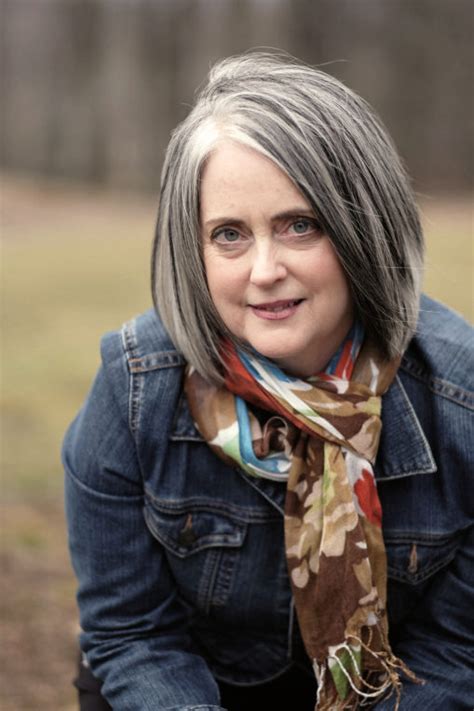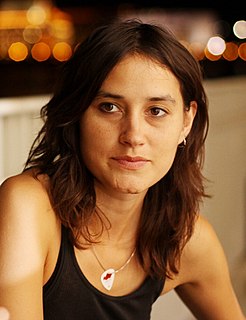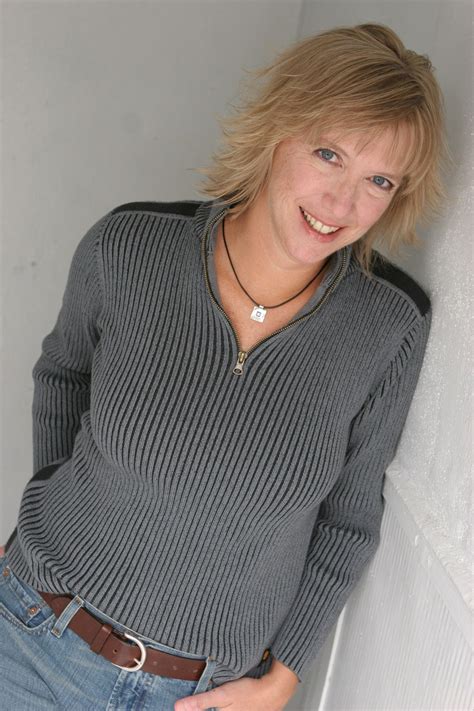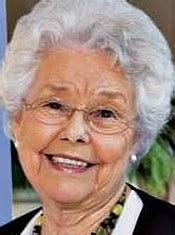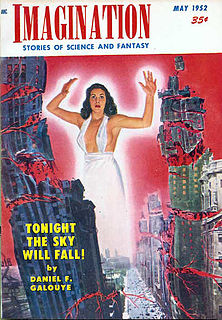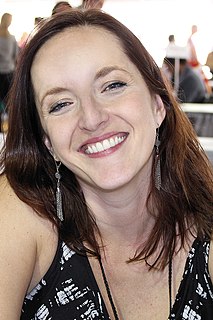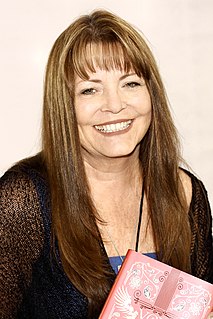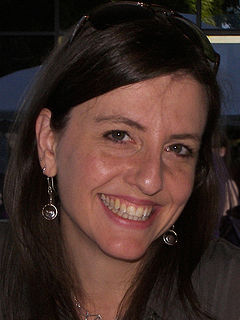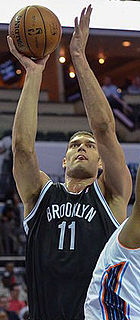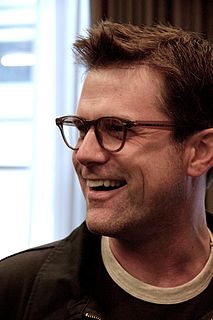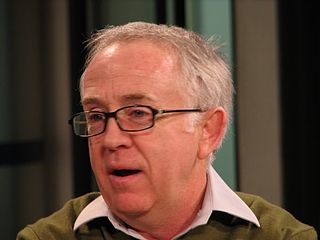Top 1200 Story Writing Quotes & Sayings - Page 4
Explore popular Story Writing quotes.
Last updated on October 16, 2024.
To me, writing is much freer than dancing. With writing, you could do it whenever you wanted. You didnt have to do little exercises and stay in shape. You could have great moments of inspiration that advanced the story. In dance, unless youre going to choreograph things yourself, youre at the service of someone else.
When I was in my late twenties, a friend suggested that, since I was an avid SF reader and had been since I was barely a teenager, that since it didn't look like the poetry was going where I wanted, I might try writing a science fiction story. I did, and the first story I ever wrote was 'The Great American Economy.'
The Work always leaves you with less of a story.
Who would you be without your story?
You never know until you inquire.
There is no story that is you or that leads to you.
Every story leads away from you.
Turn it around; undo it.
You are what exists before all stories.
You are what remains when the story is understood.
You're supposed to be writing from experience - experience with people, with reading, seeing some homeless guy on the street and making up some story of him in your head. If you never see any of that or have those conversations or even sleep enough to have vivid dreams, then what are you writing about?
I prefer to surprise myself as I'm writing. I'm not interested in it if I already know where it's going. So I have only the most general sense of what I'm doing when I start a story. I sometimes have a destination in mind, but how the story is going to go from Point A to Point Z is something I make up as I go along.
For me, a story begins with music: I feel the rhythm, the cadence, the pulse of the characters and their voices and the setting. Because I had just finished writing a book called 'Black Potatoes: The Story of the Great Irish Famine,' I was already filled with the music of the lives and culture of the Irish people, so I thought, why not use it?
A lot of people think that they are really cool because they don't outline. In my writing group, they would say, "I will never outline. I let the characters take me." C'mon, man - I outline the story, but it's only like one page. It's a list of possible reversals in the story, like things where everything will just change because of this certain reveal or this certain action. Then I start really digging into the character because, to me, I don't care what the story is.
I think the best thing about music is that someone could be writing a song that's so personal, and it tells so many other people's story at the same time. It kind of exemplifies that we are all kind of on the same wave[length] - it's amazing how comforting somebody else's story can be, because we have experienced their story in some way or another, and I can totally relate, and I get to feel that feeling and the expression of that emotion. I get to feel like as a listener, that somebody understands me, which is pretty incredible.
I've often made revisions at that stage that turned out to be mistakes because I wasn't really in the rhythm of the story anymore. I see a little bit of writing that doesn't seem to be doing as much work as it should be doing, and right at the end, I will sort of rev it up. But when I finally read the story again, it seems a bit obtrusive.
I think I started writing about identity, and I used to believe that identity is the story. But now I'm not so much subscribed to that. I mean, with 'Mr. Fox,' it has a feminist agenda as well. And so, as I sort of been away from writing about identity, I still feel that kind of tug of roots and, you know, cultural background.
When I first began to have the initial idea for 'Heartsease,' I just wrote a skeleton story; that is, I started her off as this young, bright 16-year-old and then added the events that occurred and where she and other characters fitted in, even writing 3 different endings, as I was not sure where Mary's story would lead to.
I'm not an activist. I'm a filmmaker. I'm a dramatist. My strength is to tell a story, to find a way to tell a story that makes it exciting. Our Untold History was a huge challenge. Snowden was no piece of cake, because writing code and breaking code is some of the most boring stuff you've ever seen.
I think that people have to have a story. When you tell a story, most people are not good storytellers because they think it's about them. You have to make your story, whatever story it is you're telling, their story. So you have to get good at telling a story so they can identify themselves in your story.
Writing a short story is like painting a picture on the head of a pin. And just getting everything to fit is - sometimes seems impossible. Writing a novel, though, is - has its own challenges of scope. And I think of that as painting a mural, where the challenge is that if you are close enough to work on it, you're too close to see the whole thing.
Writing something down and processing it, sitting with a text and a story, editing and rewriting new drafts - that entire process helps clarify something for myself. Depending on the person, the act of trying to tell your story helps you understand yourself better, helps you come to terms with something that happened.
I think that when I'm telling a story, I'm doing the best I can to tell the story as fully as I can, and if there are various fractures that happen in the story, then that's just the very thing that the story is as opposed to my looking for avenues of difference in one story. They just really do exist. For me, anyway.
Writing fiction lets you be a little more emotional and unguarded, a little freer. Writing fictional characters is also really different from writing about real people. In nonfiction, you can only say so much about the people you interact with. After all, they're actual people, their version of their story trumps yours. In a novel, you can build a character, using certain parts or impressions of someone you know, and guessing or inventing others, without having to worry that your guesses or memories or inventions are wrong.
When I was writing the book, I thought "Who wants to hear another story about some actor who lost his way?" But my story is a little unique in that I realized when I was 14 years old that I was different. I think a lot of gay people use drugs and alcohol to quell that fear and shame - especially people of my age.
I started writing the book without realizing I was writing a book. That sounds stupid, but it's true. I'd been trying and failing to make a different manuscript work, and I thought I was just taking a break by writing some short stories. I'm not a very good short story writer - the amazing compression that is required for short stories doesn't come easily to me. But anyway, I thought I'd try to write some short stories. And a structure took shape - I stumbled upon it.
I've had to try and find a way over the years of writing narratively that doesn't really require you to sit down and work out what the story's about. You're brought into a sort of sequence of images that have that emotional resonance, but it's kind of irrelevant what the actual story is. It's taken me maybe 13 albums or something to work that out.
From my vantage point in writing a story, I can't and don't and have no interest in thinking about the level of sophistication of the audience. I can only think about what interests me, and maybe what I would want to see if I were watching the movie. To me, that's the key to writing something that's not pandering.
The story goes that every Jedi constructs his own lightsaber, and every penmonkey constructs his own pen. Meaning, we all find our own way through this crazy tangle of possibility. This isn't an art, a craft, a career, or an obsession that comes with easy answers and isn't given over to bullshit dichotomies. We do what we do in the way we do it and hope it's right. Read advice. Weigh it in your hand and determine its value. But at the end of the day - and at the start of it - what you should be doing is writing. Because thinking about writing and talking about writing just plain isn't writing.
You have to find a way of shutting the future out and focusing on the writing. One of the problems I'll have with writing my second book is getting back into a situation where I think about the words on the page rather than the publishing industry, or success, or any kind of readership I may now have. I'll have to do what writers do, which is focus on the story and nothing else.






